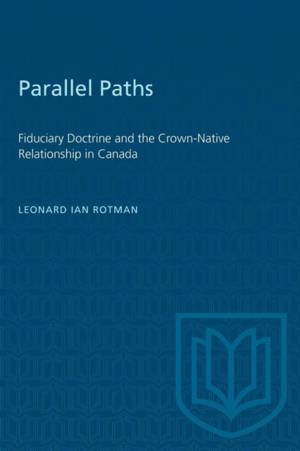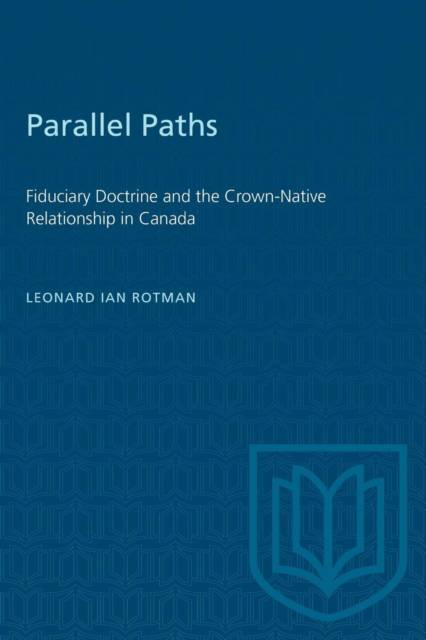
- Retrait gratuit dans votre magasin Club
- 7.000.000 titres dans notre catalogue
- Payer en toute sécurité
- Toujours un magasin près de chez vous
- Retrait gratuit dans votre magasin Club
- 7.000.000 titres dans notre catalogue
- Payer en toute sécurité
- Toujours un magasin près de chez vous
Description
In a landmark decision in 1984, the Supreme Court of Canada declared that the Crown is bound by fiduciary, or trust-like, obligations to Canada's aboriginal peoples. By holding the Crown's duty to be legal, rather than merely political or moral, the Supreme Court blazed a new path in Canadian aboriginal rights jurisprudence. Yet, more than a decade later, many of the outstanding issues arising from that decision have yet to be answered or adequately addressed. This is, in part, because the Supreme Court provided little guidance as to the nature and extent of the Crown's duty.
Leonard Rotman explores the unanswered questions that plague the Crown-Native fiduciary relationship. He begins by looking at the politics underlying Crown-Native relations and the effects of colonialism on Native peoples. Legislation and case law are then surveyed to reveal the historical and current status of fiduciary doctrine. By examining its fundamental characteristics and principles, Rotman formulates a functional rather than a categorical interpretation of fiduciary law. Finally, he discusses the effects of applying fiduciary law to the Crown-Native relationship.
Considering the present status of aboriginal rights issues in Canada, it is striking that the Crown-Native fiduciary relationship remains the subject of so much confusion and uncertainty. With this principled treatment of fiduciary doctrine and its impact upon Crown-aboriginal relations in Canada, Rotman bridges a significant gap in legal.
Spécifications
Parties prenantes
- Auteur(s) :
- Editeur:
Contenu
- Nombre de pages :
- 506
- Langue:
- Anglais
- Collection :
Caractéristiques
- EAN:
- 9780802078131
- Date de parution :
- 15-12-96
- Format:
- Livre broché
- Format numérique:
- Trade paperback (VS)
- Dimensions :
- 156 mm x 234 mm
- Poids :
- 771 g







